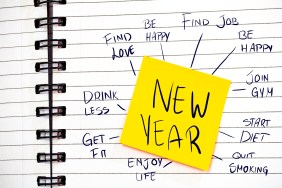You want to make your wellness a priority. You’re at a point of crisis or transition. You need accountability to reach your goals. These are all reasons you may see a doctor or therapist, but what if you could work with someone to help you avoid reaching that point? That’s where Pax Tandon, a holistic wellness coach from Philadelphia, comes in. You may be thinking, “Wellness coach? That sounds like a yoga instructor with three credits of Psych 101 and delusions of grandeur.” Not so. Tandon holds a master’s degree in positive psychology from the prestigious University of Pennsylvania. She also completed the Penn Program for Mindfulness. The fields of wellness and mindfulness are gaining traction as research shows that practicing habits of positive psychology and mindfulness can have a measurable impact on health. A wellness coach or your own wellness practice can help you avoid the “quick fix” of medicine for issues as varied as depression or headaches. Instead of trying to “fix what’s wrong” through traditional therapy, your practice can help you focus on what’s right, and reframe negatives instead of rejecting them.
“It’s distinct from therapy in that this work is about capitalizing on strengths, about empowerment, about teaching skills for resilience,” Tandon says. “We work from a point of neutrality or balance to the plus side, ramping up the joy, the positivity, the flourishing.”
Tandon, a media personality and editor of Authentic Happiness, works with many clients remotely by phone or Skype, making her services available anywhere. But if you don’t have the resources for a wellness coach right now, she offers us five tips below for becoming more centered in mind, body and spirit in 2015.
Meditation Practice
You must have a meditation practice integrated into your daily routine. There are many ways to practice meditation. My favorite and the one I advocate for is mindfulness. It’s very approachable, it’s very secular, it’s not attached to any sort of intermediary. All you need is you. And when you’re learning, it’s very helpful to have someone guide you through a body scan, or various types of meditation. That’s very helpful, but you don’t need it. You don’t need an institution; a church, a mosque, whatever. You don’t need a preacher. All any of that is is a way to bring yourself into a space of focus.
[Ed note: For a quick two-minute meditation practice, check out Tandon’s video on meditation. You can also watch her guide a group through a more in-depth body scan on her website by clicking here.]
Gratitude Exercise
Practicing gratitude is fundamentally important on a scientific level because it just gives us perspective. In a very real way, it allows us to “therapize” ourselves. It’s like giving yourself therapy in the sense that by being mindful and highlighting what’s going right, that inherently shifts your perspective. You’re not tricking your brain, these things are actually happening to you. But you’re just allowing neural circuitry to happen around those things that were going right, which then feeds joy, endorphins, happy chemicals in your brain, rather than negative spaces.
At some point in our evolution, we were running around in jungles, on plains, evading predators for survival. It was basic survival that we adapted a reptilian brain structure, it’s called the hindbrain. That’s the fear response, fight or flight, so we know how to quickly recognize a threat in our environment and respond to it. Our very survival depends on it. Now, fast-forward millions of years. We’re no longer in environments in general where predators are out to get us every second of the day. But we still have that response system. So we are trained to find what’s going wrong, where things are not quite right, the negative spaces, and we focus on those. That response spikes cortisol in our system that creates all kinds of diseases, heart disease being the prominent one — the biggest killer in the Western world.
That’s the biggest reason why we need to start reframing our perspective. One of the most effective ways to do that is a gratitude exercise of some kind. It’s most effective in the evening, before you’re wrapping up your day. Just take stock of three good things that happened that day. It’s called the three blessings exercise, sometimes the three good things, and you just mentally work through them or write them down in a journal. Keep a gratitude journal to write down those three things. And that helps you to start reframing your life around what’s going right.
Not Engaging
Don’t engage with everything. You don’t have to. To give an example; conflict. This is especially pertinent to women. People have their stuff, they will fight. [Conflict] makes us very uncomfortable, we like to resolve it very quickly. We like to take the threat out of our environment. For that reason when we’re confronted with conflict that’s not ours, it’s a friend or a third party, because it makes us uncomfortable, we want to see it resolved quickly, so we engage with it. We try to play peacemaker, try to play mediator and that tends to engage us in a lot of unnecessary conflict. It’s not ours and we don’t need it. A lot of conflict has benefits, it’s about communication, you have to have that conflict to get to a better space. You can allow people to have that. You don’t need to feel like you need to change it, you just disengage from it.
People will get in the middle of things that aren’t theirs and they come to me with these issues and I say this isn’t even about you. This is not your stuff. So not engaging is a great way to be more centered this year, to live a more flourishing existence. Fundamentally, when you’re practicing mindfulness you are detaching from your own thoughts. If you can detach from your own thoughts, you can detach from anything. And that’s the first step to disengaging and being an objective party to your environment instead of feeling like you’re always in it.
Sleep
You must get the requisite amount of sleep. We are in an environment now where it’s constant stimulation. We’ve got stimuli coming from everywhere, even when there’s no phone call, there’s no kids, there’s no computer, there’s a cell phone right there that’s blowing up. We’ve got constant stimuli and the more we engage with it, the more there is to do. The one area where we decide we have time to spare is sleep. The first thing we do is shortchange the sleep, and it’s the last thing we should shortchange. Our bodies need seven to eight hours of sleep, nine to 10 if we’re adolescents growing a brain. This is our time to regenerate and recover. Without the right amount of sleep, we’re going into our day at a deficit. We’re using all kinds of drugs. Caffeine is a drug. You can use it very productively, but most people don’t. Most people are in an addiction cycle with caffeine because they don’t get enough sleep.
So now we’ve got drugs in the mix, now we’ve got mood disorders. Tons of psychological issues are really just about not getting enough sleep. Mood disorders are one of them. Anxiety disorders — you’re that much less capable of handling the things that are coming at you in a day because you’re not getting enough sleep. Your brain is incapable of functioning optimally. So now your brain is at 60 percent because you haven’t slept, you haven’t recharged. Now because you’re at 60 percent, there’s all these things coming at you that you’re just not capable of handling effectively. That creates a ton of anxiety in your life, so now you’ve got an anxiety disorder.
On a physical level, when you don’t get enough sleep, your telomeres start to shrink. The telomeres are the parts of our cells at the ends of our chromosomes and when they shrink, aging is accelerated. When you’re getting enough sleep and doing the right nutritional things the telomeres don’t shrink, they stay the same length. Keep the telomeres long and strong, aging is more gradual. We’re accelerating the aging process by not sleeping. Decreasing our body’s ability to regenerate, recover and function optimally. Sleep is one thing you absolutely need to start respecting and encouraging in your life to flourish and be more centered.
Grit
Grit comes from the research of Angela Duckworth. She’s invested a lot of research into this and it’s getting into the school system because it’s so powerful and salient. Grit is the idea of perseverance. Persevering with a task, not giving up. It really boils down to the fact that grit is a higher predictor of success and achievement than IQ. That’s huge.
One way to be more centered, to find your flourishing this year is to get this idea of grit. Use it with your goals. If it’s about meditating more or getting to the gym more, understanding this concept of grit is huge. It’s not about some fundamental ability of mind to meditate. It’s not about the fact that I have a certain body type and I’m just not built for exercise. It’s about practice. The more I practice this mindfulness stuff, the better I’m going to get at it. That’s grit. I’m persevering and staying with it and being consistent with it.
[Ed note: Angela Duckworth’s TED talk on grit is available here.]







